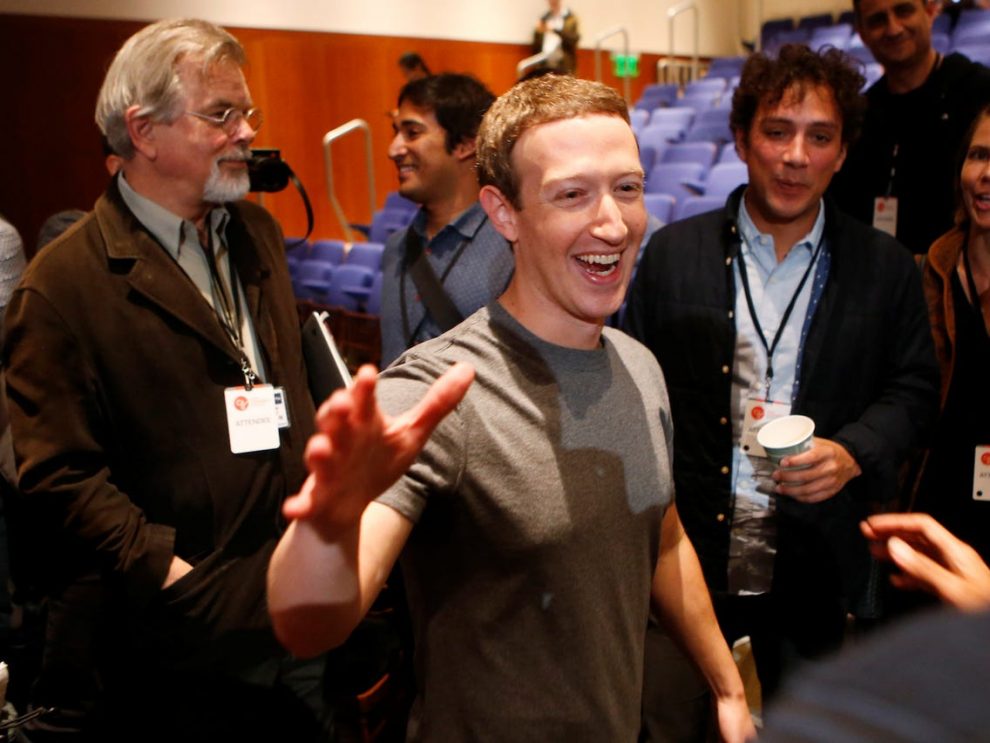The coronavirus pandemic took nearly two million lives worldwide and caused unprecedented economic devastation this year, but 2020 had at least three big winners who came out stronger in spite of – or perhaps because of – the pandemic: the world’s billionaires, Silicon Valley’s tech lords, and communist China, where the virus originated.
COMMUNIST CHINA
China’s communist regime is sounding increasingly triumphalist in the wake of the economic destruction wreaked by the pandemic that originated in Wuhan and could have been prevented by Beijing. China’s communist dictator Xi Jinping boasted in his New Year’s Eve address that China is “the first major economy worldwide to achieve positive growth” in 2020, while the rest of the world’s economy shrank.
“China’s economy is projected to grow by 2% in 2020 and by another 8.4% in 2021. By the end of next year, its economy is expected to be 10.6% larger than it was at the beginning of this year,” Axios reports. “By contrast, after shrinking by 3.6% this year and growing by a projected 4% next year, the U.S. economy is going to end 2021 just 0.25% larger than it was at the beginning of 2020.”
Much of this is due to China’s dominance of global manufacturing; and with the whole world still reeling from the pandemic, China is moving to solidify its monopoly on the world’s supply chains through expanded free trade agreements, including a new agreement with the European Union. The pandemic’s economic damage has also allowed China to buy influence in the Third World through its international infrastructure program known as the Belt and Road Initiative, which the U.S. government has criticized as imperialist colonization via a predatory debt scheme.
As Breitbart’s Frances Martel reported:
The Chinese communist state documented a record-high trade surplus in November. Exports around the world increased 21.1 percent over November 2019 despite widespread reports that Beijing is relying heavily on enslaving its ethnic minority Uyghur population to keep production costs low. Dozens of international companies — including big names like Apple, Nintendo, and Nike — have been implicated in the use of Uyghur slave labor, some believed to be based in concentration camps.
Those not outright enslaved may also be vulnerable to forced labor, particularly in the cotton-picking industry. Offered few other options, many Uyghurs work in the cotton industry, sometimes becoming involved without clear consent, researcher Adrian Zenz revealed last month.
Much of the increase in exports for China has been the product of the pandemic causing other countries to limit their manufacturing sectors, and most economic activity in general. China’s imports from outside also declined, given the limited economic activity around the world, resulting in a staggering $460 billion trade surplus with the rest of the world in November.
The Center for Economics and Business Research, a U.K. think tank, predicted this month that, in part because of the pandemic, China was on a speedier path to becoming the world’s largest economy than it had ever been, and may overtake the United States by 2028.
The key to China’s economic resilience lies in its manufacturing sector, which bounced back faster from the pandemic, as did the U.S. manufacturing sector. For example, the U.S. automotive industry was among the industries to get back to work after the initial lockdown because it could set up clear safety protocols to keep factories Covid-free by keeping factory workers six feet apart, distributing protective gear, setting up cleaning stations, and alternating work shifts to deep clean the plant and limit any exposure from Covid outbreaks.
However, after years of bad free trade agreements and offshoring of labor, the U.S. economy is much more reliant on its service sector, which is why it was much less resilient to the pandemic. Even before the government mandated lockdown, consumers changed their habits out of fear of contracting the virus. Jobs in the travel, food, leisure, and entertainment industries were especially vulnerable because “restaurants, bars, beauty shops and other retailers that involve face-to-face contact have been hardest hit at a time when Americans are trying to keep distance from one another,” the Associated Press reports. And even if every lockdown order was lifted, the elderly population – who comprise a signification percentage of American consumers – will still likely curtail their leisure and traveling habits until the virus is no longer a threat to them.
All of this was born out in an October report from the Philadelphia Federal Reserve, which revealed that the U.S. manufacturing sector “held up much better and recovered much more quickly than the services sector,” as Breitbart’s John Carney reported. Overall, the pandemic hit the U.S. nonmanufacturing sector twice as hard as the manufacturing sector, all of which confirms the importance of having a vibrant manufacturing base. Meanwhile, China is increasing its investment in new manufacturing facilities and infrastructure, while the Unites States’ Congress has still failed to propose or pass any major infrastructure legislation that will put the U.S. on a path to compete with China in developing and building the technologies of the future on our shores.
To top off this victorious year for Beijing, the communist regime now has an ally in the Oval Office with Joe Biden emerging as the victor in this year’s presidential race. Not only does the president-elect have family members with close business ties with the communist regime, Biden has also repeatedly declared that he doesn’t see China as “competition” to the U.S. Furthermore, Biden has plans to impose a penalty tax on U.S. corporations that move business overseas. In theory, the proposal is to hurt companies for offshoring their manufacturing. But in practice, this policy aligns perfectly with the interests of communist China because companies can bypass Biden’s tax penalty by simply outsourcing their offshore manufacturing to foreign partners in China; so instead of making the parts themselves, these companies can simply buy from a third-party foreign manufacturer, which companies like Apple already do. Thus, the billionaire class, which favored Biden in the 2020 election, will have little to fear from Biden’s offshore tax threat, and China will be delighted by it.
2020 may well be remembered as the first year of the new Cold War with China; and like the last Cold War, there is now a space race, as China ends the year having planted its flag on the moon where the American flag was planted over 50 years ago. However, it remains to be seen whether the United States will emerge victorious against this new communist menace, which has already taken millions of American jobs and hundreds of thousands of American lives, all while tormenting its own citizens, who have been imprisoned, surveilled, disappeared, and used as slave labor by an authoritarian regime enriched by 20 years of record trade imbalances acquired through flagrant trade violations.
The greatest generation defeated its “evil empire.” Will the Covid-generation, which came of age during the great pandemic, defeat the new evil empire in the decades to come?
THE WORLD’S BILLIONAIRES
Never was the old cliché that “the rich get richer” truer than in 2020. The wealth of the world’s super-rich broke new records this year, according to a report conducted by PwC and the Swiss bank UBC. The combined wealth of the world’s over 6,000 billionaires grew to $10.2 trillion in July, blowing past the previous record of $8.9 trillion in 2017. And the number of new billionaires also grew from 2,158 in 2017 to 2,189 in 2020. All of this happened at the height of the pandemic between April and July 2020, as average people the world over were hit by economic devastation, but the world’s billionaires increased their wealth by over a quarter to 27.5 percent, the Guardian reports.
In 2020, America’s 614 billionaires increased their collective net worth by $931 billion, even as tens of millions of Americans lost their jobs. Between just March and May alone, the net wealth of these American billionaires increased by 15 percent, as over 36 million Americans were joblessness due to the pandemic. In contrast, the U.S. poverty rate rose to 11.7 percent in November, a jump of 2.4 percent since June, marking the highest single year increase since the government began tracking poverty 60 years ago.
On a worldwide level, the pandemic has caused global extreme poverty to rise for the first time in over 20 years, according to a World Bank report in October. The report estimates that the pandemic will “push an additional 88 million to 115 million people into extreme poverty this year, with the total rising to as many as 150 million by 2021.” They define “extreme poverty” as living on less than $1.90 a day, and about 82 percent of this “new poor” population will be in middle-income countries.
However, 2020 was a banner year for the world’s richest man, Jeff Bezos, whose wealth grew by nearly 80 percent during the pandemic from $113 billion in March 2020 to $203.1 billion in October 2020, as the lockdowns made everyone increasingly dependent on his Amazon services to deliver food and supplies. Amazon’s 2020 third-quarter profits tripled from what they were last year, from $2.1 billion in 2019 to $6.3 billion in 2020.
That is in stark contrast to the estimated one in five small businesses that closed during the pandemic. In May, the Washington Post reported that over 100,000 U.S. small businesses – once the economic engine of the American dream – closed forever due to the virus. The pandemic devastated mom-and-pop businesses that were forced to shut down due to government lockdown orders that favored large retail chains like Walmart. These big box stores were allowed to remain open and rake in huge profits, increasing their monopoly power and driving out smaller competitors for good. This year Walmart increased its profits by nearly 45 percent over last year, thanks to the pandemic. The net wealth of Walmart founder Sam Walton’s heirs — Jim, Rob, and Alice Walton – each increased by nearly a quarter during the pandemic.
Meanwhile, the workers fueling this massive wealth increase for the billionaire owners of Amazon and Walmart gained little from this boom. Amazon workers received an extra 95 cents an hour and Walmart workers received 63 cents an hour as compensation over the course of the pandemic, while during that same period, Bezos’ income increased by $70 billion and the Walton family’s fortune increased by $45 billion, according to a Brookings Institute report. But there is little recourse for these workers to complain about that disparity. The companies, which combined employ nearly 3 million Americans, have been ruthless in suppressing attempts by their workforce to unionize and collectively bargain for better wages and working conditions.
However, these same American billionaires and their global corporations have been very vocal in support of woke political causes like the Black Lives Matter movement, promising millions of dollars to repair the damage caused by slavery in America over 150 years ago, even as these same corporations have little qualms about exploiting slave labor today in China.
The pandemic has intensified this already troubling income disparity. America today increasingly resembles an oligarchy, where the concentration of power into the hands of a small cadre of the super-rich and their monopolistic mega-corporations allow these elites to buy political influence and stomp on the rights of everyone else. Independent journalist Glenn Greenwald notes that America’s founders would have rightly feared that this “economic inequality could become so severe, wealth concentrated in the hands of so few, that it would contaminate the political realm, where those vast wealth disparities would be replicated, rendering political rights and legal equality illusory.”
Indeed, as Greenwald writes, the “combination of sustained lockdowns, massive state-mandated transfers of wealth to corporate elites in the name of legislative ‘COVID relief,’ and a radically increased dependence on online activities has rendered corporate behemoths close to unchallengeable in terms of both economic and political power.” None of this reflects free market capitalism, but rather crony capitalism, whereby “the power of the state [is used] to crush small competitors, lavish corporate giants with ever more wealth and power, and turn millions of Americans into vassals whose best case scenario is working multiple jobs at low hourly wages with no benefits, few rights, and even fewer options.”
Meanwhile, the year ends with a Republican Senate’s refusal to grant American citizens $2,000 direct relief payments, opting instead to “target” relief to the favored few. Senate Majority Leader Mitch McConnell referred to direct payments to all Americans as “socialism for rich people,” even though actual billionaires are benefitting the most from the “relief” Congress targets their way. As Congress debates “socialism,” nearly 12 million Americans owe an average of $5,850 in back rent and utilities, and an estimated 5.4 million Americans lost their employer health insurance in a three-month span this year due to the pandemic, which is more than the loss of coverage in any single year.
SILICON VALLEY’S TECH LORDS
Of all the monopolistic billionaires blessed by the pandemic, perhaps none have come out as victorious as the tech lords of Silicon Valley. Not only did they increase their massive wealth and monopoly power during the pandemic, they also helped get their preferred candidate elected to the White House.
As has been well-documented, Facebook’s Mark Zuckerberg (whose net wealth increased by over 85 percent this year) deliberately censored stories about Hunter Biden’s corruption scandal in the lead up to the November election, and Google (whose 2020 third-quarter revenue increased by 14 percent year-over-year) suppressed the Google search visibility of Breitbart News articles by 99 percent in 2020 compared to the same period in 2016.
Greenwald notes that the “most menacing” aspect of all of the pandemic-fueled increase of wealth and monopoly power is that its primary beneficiaries have been Facebook, Google, and Amazon – companies with “unprecedented power” over “the dissemination of information and conduct of political debates, to say nothing of the immense data they possess about our lives by virtue of online surveillance.”
He writes:
Stay-at-home orders, lockdowns and social isolation have meant that we rely on Silicon Valley companies to conduct basic life functions more than ever before. We order online from Amazon rather than shop; we conduct meetings online rather than meet in offices; we use Google constantly to navigate and communicate; we rely on social media more than ever to receive information about the world. And exactly as a weakened population’s dependence on them has increased to unprecedented levels, their wealth and power has reached all new heights, as has their willingness to control and censor information and debate.
That Facebook, Google and Twitter are exerting more and more control over our political expression is hardly contestable. What is most remarkable, and alarming, is that they are not so much grabbing these powers as having them foisted on them, by a public — composed primarily of corporate media outlets and U.S. establishment liberals — who believe that the primary problem of social media is not excessive censorship but insufficient censorship.
Greenwald calls Facebook’s decision to censor the Hunter Biden stories “one of the most significant, and menacing, political events of the last several years,” noting that “this censorship was announced by a Facebook corporate spokesman who had spent his career previously as a Democratic Party apparatchik provided the perfect symbolic expression of this evolving danger.”
“These tech companies are more powerful than ever, not only because of their newly amassed wealth at a time when the population is suffering, but also because they overwhelmingly supported the Democratic Party candidate about to assume the presidency,” he adds. “Predictably, they are being rewarded with numerous key positions in his transition team and the same will ultimately be true of the new administration.”
Indeed, in 2020, the rich got richer, Silicon Valley got more powerful, and communist China reaped the benefits of the death and chaos that emerged from its shores. The rest of us, to quote the poet, are “turning and turning in the widening gyre” hoping that the centre will hold.
Story cited here.
























